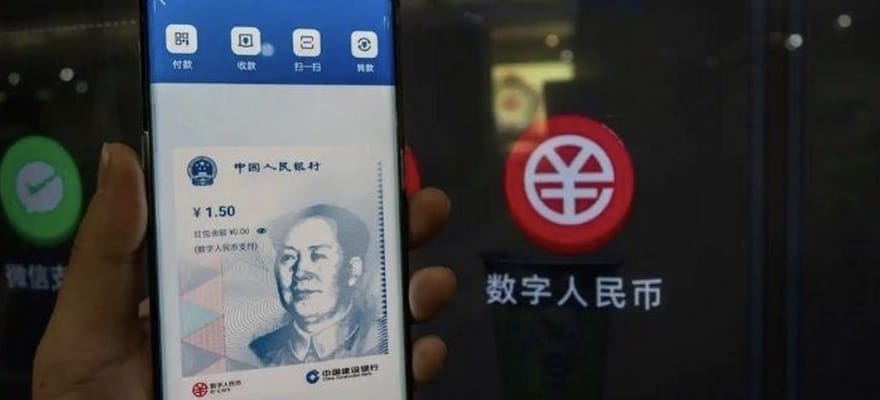China began studying the potential of digital currencies all the way back in 2014, under the leadership of Governor Zhou Xiaochuan, and in April 2020, a national digital currency was tested in several large cities like Shenzhen, Suzhou, Chengdu, and Xiong’an.
The main objective had been to test the currency’s reliability, stability, ease of use, and regulatory concerns, at a time when decentralized currencies like Bitcoin were gaining traction.
China was one of the leading countries in terms of crypto mining and usage of crypto Payments , but now that a Digital Yuan has already been launched, traditional Cryptocurrencies are facing harsh treatment from the government.
Increasing competition in the payment space
Local tech giants like Alipay and WeChat Pay dominate the digital payment sector in China and the digital Yuan comes as a real contender, increasing competition in the industry, while also reducing system risks.
Linghao Bao, analyst at Trivium China, highlighted that “the system is owned by private companies” and if either of the two large brands were to go bankrupt, it could create systematic risks.
Chinese consumers already receiving Digital Yuans
In terms of the distribution system, the Chinese government assembled a two-tier system, which means the PBoC (People’s Bank of China) will distribute digital Yuans to commercial banks.
These entities will later be in charge of allowing customers to exchange their coins and cash for digital Yuans.

Also, based on media reports, millions of dollars’ worth of digital currency have already been deployed via a series of lotteries in multiple cities.
Using the new currency is not an issue, given people only need to download storage wallets and generate a QR code that can be easily scanned by payment terminals.
It does not resemble Bitcoin and other altcoins
As compared to Bitcoin and most of the traditional cryptocurrencies, the digital Yuan is a centralized payment solution and can’t be exchanged on popular platforms like Coinjump. In fact, China has been cracking down on exchanges since 2017, but that does not apply to the entire world.
Coinjump is located in Estonia, one of the countries currently with a regulatory framework in place, requiring all exchanges to get an operating license.
Users of Coinjump’s interface can buy or sell Bitcoin, while also taking advantage of the exclusive buy back service currently in place at Coinjump.
Despite being increasingly used locally, the digital Yuan is not a global cryptocurrency and comes with several important drawbacks, including control of the government.
Digital assets enthusiasts are against government-backed cryptocurrencies, given these negate privacy and freedom, two of the features enabled by traditional tokens such as Bitcoin.
The whole point of bringing digital money into existence was putting an end to the centralized monetary system dominated by central banks and instead providing a decentralized solution.
Communist regimes are expected to keep the pressure on Bitcoin, Ether, and other cryptocurrencies, while the only hope comes from Western Countries, where these assets can be integrated as investing tools or as alternative mediums of exchange.












